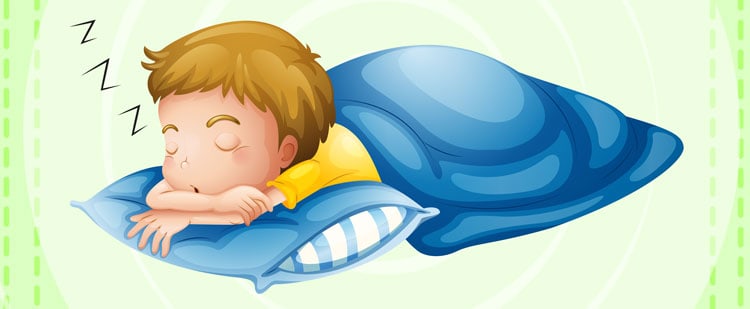What Counts As Sleep Problems?
Whether a child’s sleep is a problem or not is determined in part by culture, family and the society we live in. For example, children sleep in their parent’s beds in many places around the world. In Western societies, there is often a societal or family expectation that they sleep in their own beds and when they do not, that can be seen as a problem. There is also a “goodness of fit” between the child’s sleep pattern and the parent’s. If both are early risers there is not a problem. If, as is often the case, the child wakes early and the parents like to sleep a little later, that can be a problem (for the parents!) What is definitely a problem, is a child not getting enough sleep.
Signs That A Child Is Not Getting Enough Sleep
There is a problem if a child is not getting enough sleep. Here are some signs that a child is tired and may not be getting enough sleep:
? Hard to wake in the morning
? Falling asleep in class
? Frequently falling asleep in the car or on the bus
? Hyperactive when it gets close to bedtime
? Irritable when it gets close to bedtime
Types Of Sleep Problems In Children
Problems Going To Bed
Problems getting children to go to bed can be due to a number of factors. If your child tends to get silly when tired, this is a time when they are more likely to play up. Going to bed is a separation and children may try to delay this in a variety of ways. Some children become anxious about monsters or other imagined creatures. If there has been any kind of loss, trauma or transition, it may make it harder for a child to separate from their parent to sleep.
Middle of the Night Wakings
We all go through sleep cycles. When we transition between them, we go through a lighter phase of sleep. If something that was there when we went to sleep (a parent, a pacifier, a favourite teddy bear) is not there or cannot be found, the child is more likely to wake up and call for you/come in to your room.
Early Risers
Most people who have an early riser wish there was a solution. Unfortunately some kids are just wired that way and while there may be some room for manoeuvre, you are unlikely to be able to get a child who normally wakes at 6am to regularly sleep until 8am (until they get older).
Sleepwalking and Sleep Talking
Sleepwalking and sleep talking often have a hereditary element. There is typically not any intervention needed apart from making sure a sleepwalker is safe (stair gates, locks on doors etc.) Sleepwalking is sometimes improved by better sleep habits in general but often children just need to outgrow it.
Nightmares
Many children experience nightmares at some point in their lives. They are a considered a sleep problem if they are persistent and significantly effect a child’s ability to go to or stay asleep.
Night Terrors
Night terrors are different to nightmares. They are harmless but can be very scary for a parent. The child with this kind of sleep problem will wake in the night, sometimes with a scream, often crying hysterically and cannot be comforted by their caregiver. They may talk irrationally and resist being held. In the morning they will have no recollection of the incident.
Top Tips
? Address and consider seeking professional help for any fears or anxieties a child may have
? Try to teach your child to go to sleep on their own
? If you have an early riser, you may have to shift your own bedtime earlier to be able to cope
? Sleep walking and sleep talking are often hereditary. Many children simply outgrow them
? Night terrors are scary for the adult caregiver but harmless for the child
SLEEP WELL!















